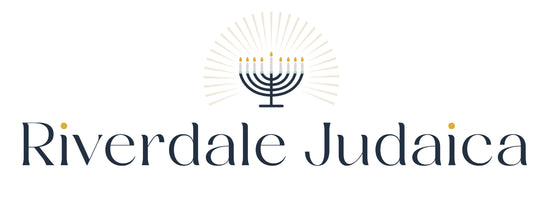{"id":8843415191703,"title":"Strauss, Spinoza \u0026 Sinai P\/B (BKE-SSSPB)","handle":"strauss-spinoza-sinai-p-b-bke-ssspb","description":"\u003ch1 class=\"product_title entry-title\"\u003eStrauss, Spinoza \u0026amp; Sinai: Orthodox Judaism and Modern Questions of Faith \u003c\/h1\u003e \u003cdiv class=\"subtitle\"\u003e \u003c\/div\u003e \u003cdiv class=\"subtitle\"\u003e \u003cdiv class=\"newdesccription\"\u003e\n\u003cstrong\u003eFrom his early to his late work, Leo Strauss repeatedly stated that, despite appearances to the contrary, Spinoza, and by extension modern philosophy and science, had not refuted Jewish Orthodoxy, but only dismissed it from the conversation. Until now, Strauss’s challenge to modern Orthodox thinkers to figure out what this really means has gone unheeded. \u003cbr\u003e\u003cbr\u003eStrauss, Spinoza \u0026amp; Sinai is the first collection of essays to take up Strauss’s claim, not on strictly philosophical grounds but rather on the terms of the Jewish tradition. The result is an excellent, diverse, stimulating, and provocative set of essays that anyone interested in Strauss, modern Judaism, or modern religion more broadly ought to take very seriously. \u003c\/strong\u003e— Professor Leora Batnitzky, Perelman Professor of Jewish Studies, Princeton University, and author of Leo Strauss and Emmanuel Levinas: Philosophy and the Politics of Revelation\u003cbr\u003e\u003cbr\u003e More than three centuries after Baruch Spinoza’s excommunication from the Jewish community of Amsterdam, his legacy remains contentious. Born in 1632, Spinoza is one of the most important thinkers of the Enlightenment and arguably the paradigm of the secular Jew, having left Orthodoxy without converting to another faith. \u003cbr\u003e\u003cbr\u003eOne of the most unexpected and provocative critiques of Spinoza comes from Leo Strauss.\u003cbr\u003e\u003cbr\u003eStrauss grew up in a nominally Orthodox home and emigrated from Germany to the United States in the 1930s. He taught at the University of Chicago and was one of the most influential political philosophers of the twentieth century until his death in 1973.\u003cbr\u003e\u003cbr\u003e Though Strauss was not an Orthodox Jew, in a well-known essay that prefaced his study of Spinoza, he critically examines modern philosophy's challenge to traditional religion. There he argues that while the Enlightenment had failed to decisively refute Orthodoxy, at the same time, Orthodoxy could only claim to \u003cem\u003ebelieve \u003c\/em\u003eits core tenets were true but could not claim to \u003cem class=\"nitro-offscreen\"\u003eknow \u003c\/em\u003ethey were true. Strauss leaves the question at an impasse; both the Enlightenment and Orthodoxy rest on axioms that neither side can fully prove or fully refute.\u003cbr\u003e\u003cbr\u003e Curiously, Strauss never asks Orthodox Jewish thinkers if his approach to defending Judaism against the claims of the Enlightenment is the same as theirs. This volume poses the question to a group of serious Orthodox Jewish thinkers in an attempt to find out if Orthodoxy has a better answer to the questions raised by Strauss than the one Strauss advanced on its behalf. \u003cbr\u003e\u003cbr\u003eThe seventeen essays in this volume use a variety of approaches, drawing on traditional primary Jewish sources like Scripture, Talmud, and Midrash; medieval rationalists like Maimonides; Enlightenment-era Orthodox sources; Jewish mystical writings like Kabbalah and Chasidut; modern philosophical movements including postmodernism and analytic philosophy; and contemporary Jewish Bible interpretation. While the answers differ, what unites these essays is the willingness to take Strauss’ question seriously and to provide “inside” answers, that is, answers given by Orthodox Jews. \u003c\/div\u003e \u003c\/div\u003e \u003ch1 class=\"product_title entry-title\"\u003e\u003cspan style=\"font-size: 10px;\"\u003eSoftcover\u003c\/span\u003e\u003c\/h1\u003e \u003cp dir=\"ltr\" data-wcag-dynamic-font=\"true\" data-wcag-org-font-size=\"12\"\u003eEnglish\u003c\/p\u003e \u003cp dir=\"ltr\" data-wcag-dynamic-font=\"true\" data-wcag-org-font-size=\"12\"\u003e331 Pages \u003c\/p\u003e \u003cp dir=\"ltr\" data-wcag-dynamic-font=\"true\" data-wcag-org-font-size=\"12\"\u003eISBN:9781947857728\u003c\/p\u003e \u003cp dir=\"ltr\" data-wcag-dynamic-font=\"true\" data-wcag-org-font-size=\"12\"\u003eList: $19.95\u003c\/p\u003e","published_at":"2025-02-19T22:04:17-05:00","created_at":"2025-02-19T22:04:17-05:00","vendor":"Riverdale Judaica","type":"P","tags":[],"price":2600,"price_min":2600,"price_max":2600,"available":true,"price_varies":false,"compare_at_price":null,"compare_at_price_min":0,"compare_at_price_max":0,"compare_at_price_varies":false,"variants":[{"id":45199023308951,"title":"Default Title","option1":"Default Title","option2":null,"option3":null,"sku":null,"requires_shipping":true,"taxable":true,"featured_image":null,"available":true,"name":"Strauss, Spinoza \u0026 Sinai P\/B (BKE-SSSPB)","public_title":null,"options":["Default Title"],"price":2600,"weight":2,"compare_at_price":null,"inventory_management":null,"barcode":null,"requires_selling_plan":false,"selling_plan_allocations":[]}],"images":[],"featured_image":null,"options":["Title"],"requires_selling_plan":false,"selling_plan_groups":[],"content":"\u003ch1 class=\"product_title entry-title\"\u003eStrauss, Spinoza \u0026amp; Sinai: Orthodox Judaism and Modern Questions of Faith \u003c\/h1\u003e \u003cdiv class=\"subtitle\"\u003e \u003c\/div\u003e \u003cdiv class=\"subtitle\"\u003e \u003cdiv class=\"newdesccription\"\u003e\n\u003cstrong\u003eFrom his early to his late work, Leo Strauss repeatedly stated that, despite appearances to the contrary, Spinoza, and by extension modern philosophy and science, had not refuted Jewish Orthodoxy, but only dismissed it from the conversation. Until now, Strauss’s challenge to modern Orthodox thinkers to figure out what this really means has gone unheeded. \u003cbr\u003e\u003cbr\u003eStrauss, Spinoza \u0026amp; Sinai is the first collection of essays to take up Strauss’s claim, not on strictly philosophical grounds but rather on the terms of the Jewish tradition. The result is an excellent, diverse, stimulating, and provocative set of essays that anyone interested in Strauss, modern Judaism, or modern religion more broadly ought to take very seriously. \u003c\/strong\u003e— Professor Leora Batnitzky, Perelman Professor of Jewish Studies, Princeton University, and author of Leo Strauss and Emmanuel Levinas: Philosophy and the Politics of Revelation\u003cbr\u003e\u003cbr\u003e More than three centuries after Baruch Spinoza’s excommunication from the Jewish community of Amsterdam, his legacy remains contentious. Born in 1632, Spinoza is one of the most important thinkers of the Enlightenment and arguably the paradigm of the secular Jew, having left Orthodoxy without converting to another faith. \u003cbr\u003e\u003cbr\u003eOne of the most unexpected and provocative critiques of Spinoza comes from Leo Strauss.\u003cbr\u003e\u003cbr\u003eStrauss grew up in a nominally Orthodox home and emigrated from Germany to the United States in the 1930s. He taught at the University of Chicago and was one of the most influential political philosophers of the twentieth century until his death in 1973.\u003cbr\u003e\u003cbr\u003e Though Strauss was not an Orthodox Jew, in a well-known essay that prefaced his study of Spinoza, he critically examines modern philosophy's challenge to traditional religion. There he argues that while the Enlightenment had failed to decisively refute Orthodoxy, at the same time, Orthodoxy could only claim to \u003cem\u003ebelieve \u003c\/em\u003eits core tenets were true but could not claim to \u003cem class=\"nitro-offscreen\"\u003eknow \u003c\/em\u003ethey were true. Strauss leaves the question at an impasse; both the Enlightenment and Orthodoxy rest on axioms that neither side can fully prove or fully refute.\u003cbr\u003e\u003cbr\u003e Curiously, Strauss never asks Orthodox Jewish thinkers if his approach to defending Judaism against the claims of the Enlightenment is the same as theirs. This volume poses the question to a group of serious Orthodox Jewish thinkers in an attempt to find out if Orthodoxy has a better answer to the questions raised by Strauss than the one Strauss advanced on its behalf. \u003cbr\u003e\u003cbr\u003eThe seventeen essays in this volume use a variety of approaches, drawing on traditional primary Jewish sources like Scripture, Talmud, and Midrash; medieval rationalists like Maimonides; Enlightenment-era Orthodox sources; Jewish mystical writings like Kabbalah and Chasidut; modern philosophical movements including postmodernism and analytic philosophy; and contemporary Jewish Bible interpretation. While the answers differ, what unites these essays is the willingness to take Strauss’ question seriously and to provide “inside” answers, that is, answers given by Orthodox Jews. \u003c\/div\u003e \u003c\/div\u003e \u003ch1 class=\"product_title entry-title\"\u003e\u003cspan style=\"font-size: 10px;\"\u003eSoftcover\u003c\/span\u003e\u003c\/h1\u003e \u003cp dir=\"ltr\" data-wcag-dynamic-font=\"true\" data-wcag-org-font-size=\"12\"\u003eEnglish\u003c\/p\u003e \u003cp dir=\"ltr\" data-wcag-dynamic-font=\"true\" data-wcag-org-font-size=\"12\"\u003e331 Pages \u003c\/p\u003e \u003cp dir=\"ltr\" data-wcag-dynamic-font=\"true\" data-wcag-org-font-size=\"12\"\u003eISBN:9781947857728\u003c\/p\u003e \u003cp dir=\"ltr\" data-wcag-dynamic-font=\"true\" data-wcag-org-font-size=\"12\"\u003eList: $19.95\u003c\/p\u003e"}

